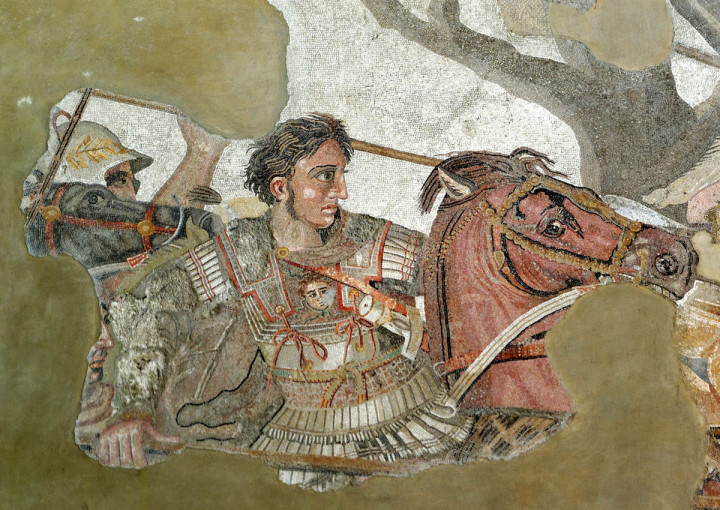A particularly insightful opinion piece by Giles Fraser [1] for the Guardian reminds us that “In the 1980s, for example, the Greeks spent an average of 6.2% of their GDP on defence compared with a European average of 2.9%. In the years following their EU entry, the Greeks were the world’s fourth-highest spenders on conventional weaponry.” And “corrupt German companies bribed corrupt Greek politicians to buy German weapons. And then a German chancellor presses for austerity on the Greek people to pay back the loans they took out (with Germans banks) at massive interest, for the weapons they bought off them in the first place. Is this an unfair characterisation? A bit. It wasn’t just Germany.” In fact France was there too. His central point is that “As Greece’s spending on weapons shows, it’s not pensions or benefits that cripple economies, it’s the military-industrial complex”.
The Greek official that accepted bribes from German Arms Companies is now in prison but the Greek debt to those companies, and banks it took loans from to pay for them are considered sacrosanct.
“Greece should not make cuts in its defence spending and had played an important role in southern Europe as a NATO member, NATO Secretary-General Jens Stoltenberg told a German television station…” In fact Greece was seen as a first line of defence against Communism, leading to its 70’s military coup, and increased its military budget even more after the conflict with Turkey over Cyprus.
A bit of History
The history of militarism and debt is long and full of examples of movements that attempted to resist taxation on ordinary people in order to fund military campaigns.
It has been suggested that tax resistance played a significant role in the collapse of several empires, including the Egyptian, Roman, Spanish, and Aztec.
In 411 B.C Aristophanes’ play, Lysistrata poses the idea that Greek women could refuse to have sex with their war-mongering husbands until they agreed to stop fighting, combined with an early example of war tax resistance.
Alexander (the “Great”), however, apparently had only 70 talents of silver and 30 days’ supply of food for his Asia campaign; it would appear that he intended to live off the land and pay for his expedition with plunder. So we cannot blame the strongest Helleniser of Asia (in spite of not being Greek but Macedonian) for setting the example of militarism and debt.
The Zealots (ancient Judea) resisted the Roman poll tax during the 1st century AD, culminating in the First Jewish–Roman War.
Other historic events that originated as tax revolts include the American Revolution, the French Revolution and the 800 year old Magna Carta: In 1202 King John of England raised taxes to pay for a new war against France. The barons were furious at the waste of money and forced King John to agree a list of promises on 15th June 1215 when Magna Carta was born – one of the most important documents in the history of human rights.
The English Peasants’ Revolt of 1381 was precipitated by King Richard II’s heavy-handed attempts to enforce the third medieval poll tax, first levied in 1377 supposedly to finance military campaigns overseas.
Charles I of England tried to levy money without the consent of Parliament in coastal towns during a time of war, and it provoked increasing resistance. It was one of the causes of the English Civil War, where he lost his head.
In Britain income tax was introduced in 1799, to pay for weapons and equipment in preparation for the Napoleonic wars, whilst the US federal government imposed their first income tax in the Revenue Act of 1861 to help pay for the American Civil War.
In 1846 Henry David Thoreau refused to pay the annual $1.50 ($36 in 2010 dollars) Massachusetts poll tax levied for the Mexican War. These events were central to his developing ideas of Civil Disobedience.
Back to Greece
Economists have calculated that if Greece had cut defence spending to levels similar to other EU states over the past decade, it would have saved around €150bn — more than its last bailout. According to SIPRI (Stockholm International Peace Research Institute) statistics, even though Greek military spending has declined since the crisis, Greece is the second-biggest defence spender (in relation to its GDP) among the 27 NATO countries, after the U.S.
Whatever the result of the referendum, Greece must start a comprehensive plan of disarmament and default, as a matter of urgency, on the illegal military contracts it was bribed into entering.
As for the Troika, if they do not apply a more reasonable and compassionate hand, in particular now that the IMF has acknowledged the need for debt relief and allowing for growth and development to be part of debt repayment, Europe may well find itself with a military coup on its doorstep, and plenty of ultra-fascist groups festering in what little will be left of the country.
1. Dr Giles Fraser is priest-in-charge at St Mary’s Newington in south London and the former canon chancellor of St Paul’s Cathedral. Acting in that capacity he was central to allowing the establishment of the Occupy campsite at St Paul’s churchyard in 2011.






